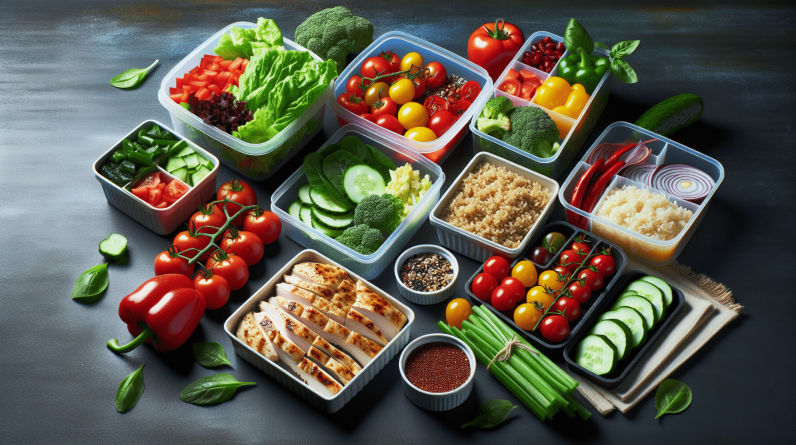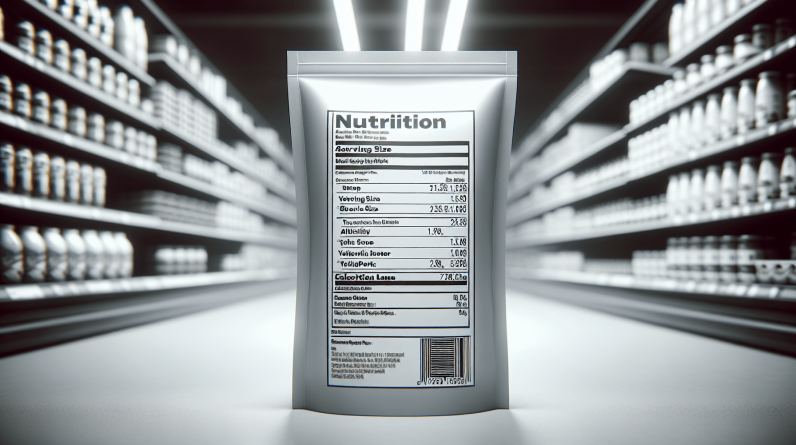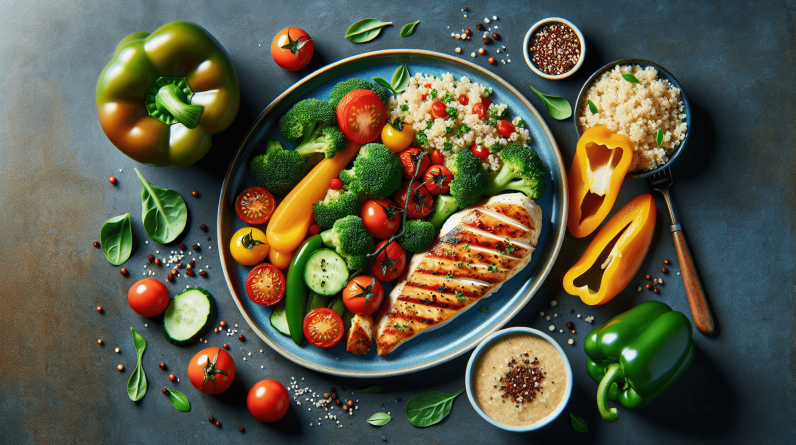
Have you been thinking about losing weight but aren’t sure where to start? You’re definitely not alone. Many people find themselves in the same situation, eager to shed some pounds but overwhelmed by the multitude of information and choices available. The good news is that starting your weight loss journey doesn’t have to be confusing or intimidating. Here, you will find practical and achievable weight loss tips tailored specifically for beginners.
Understanding Weight Loss

Before diving into tips and strategies, it’s important to understand the basics of weight loss. In essence, weight loss occurs when you burn more calories than you consume. This balance between calories consumed and calories burned can be influenced by various factors including diet, physical activity, and metabolism.
What Are Calories?
Calories are units of energy that your body uses to perform various functions, including maintaining your heartbeat, breathing, and even thinking. When you consume more calories than your body needs, the excess gets stored as fat. Conversely, when you consume fewer calories than your body requires, your body begins to use the stored fat for energy, leading to weight loss.
| Calorie Concept | Explanation |
|---|---|
| Consumed Calories | Energy you intake from food and beverages |
| Burned Calories | Energy your body uses for daily activities and exercise |
| Calorie Deficit | Consuming fewer calories than you burn, resulting in weight loss |
Setting Realistic Goals
One of the first steps in your weight loss journey is to set realistic goals. Goals provide a clear path and can make your weight loss journey more manageable and less overwhelming.
How to Set Realistic Goals
Start by determining your ultimate goal weight, but remember to break it down into smaller, more manageable milestones. For example, instead of aiming to lose 50 pounds, start with a goal of losing 5 pounds. Achieving these smaller milestones will not only keep you motivated but also make the journey feel less daunting.
SMART Goals
A useful method for setting effective goals is the SMART criteria, which stands for Specific, Measurable, Achievable, Relevant, and Time-bound. Here’s how you can apply it:
| Criteria | Explanation |
|---|---|
| Specific | Clearly define your goal, e.g., “Lose 10 pounds in 3 months.” |
| Measurable | Make sure you can track your progress, e.g., by weighing yourself weekly. |
| Achievable | Ensure your goal is realistic, e.g., losing 1-2 pounds per week. |
| Relevant | Choose a goal that is important to you, e.g., improving overall health. |
| Time-bound | Set a deadline for your goal, e.g., “By December 31.” |
Nutrition Basics
You’ve probably heard the saying, “You cannot out-exercise a bad diet.” Nutrition plays a critical role in weight loss, and making healthier food choices is foundational.
Understanding Macronutrients
Your food is composed of macronutrients—carbohydrates, proteins, and fats—which play different roles in your body.
Carbohydrates
Carbs are your body’s primary source of energy. Opt for complex carbohydrates like whole grains, vegetables, and legumes instead of simple carbohydrates such as sugar and white bread, which can spike your insulin levels and lead to weight gain.
Proteins
Proteins are essential for muscle repair and growth. They help keep you full longer, which can aid in weight loss. Lean meats, dairy, and plant-based proteins like beans and lentils are excellent choices.
Fats
Fats have been misunderstood for years. Healthy fats, such as those found in avocados, nuts, and olive oil, are vital for brain health and hormone production. However, it’s best to limit saturated and trans fats, which can be detrimental to your health.
Portion Control
Understanding portion sizes can help you avoid overeating. Try using smaller plates and bowls, and pay attention to serving sizes listed on nutritional labels.
Exercise: Moving Toward Your Goals
While diet is critical, incorporating physical activity can accelerate your weight loss efforts and improve your overall health.
Finding The Right Exercise
Start by choosing activities you enjoy. Whether it’s walking, cycling, swimming, or aerobic classes, the key is to be consistent.
Aerobic Exercise
Aerobic exercises, such as running, walking, and swimming, are excellent for burning calories. Aim for at least 150 minutes of moderate aerobic activity or 75 minutes of vigorous activity per week.
Strength Training
Incorporate strength training exercises like weight lifting or body-weight exercises (e.g., push-ups, squats) at least two days per week. Strength training helps build muscle, which can increase your resting metabolic rate.
Incorporating Exercise Into Your Daily Routine
You don’t need a gym membership to get started. Simple changes like taking the stairs instead of the elevator or going for a walk during your lunch break can add up.
Importance of Hydration
Proper hydration is often overlooked but is crucial for weight loss. Drinking water can help control hunger, improve metabolism, and replace high-calorie beverages.
How Much Water Should You Drink?
A general recommendation is to drink at least eight 8-ounce glasses of water per day, but individual needs may vary based on factors such as activity level and climate.
Tips for Staying Hydrated
- Carry a reusable water bottle.
- Drink a glass of water before each meal.
- Flavor your water with slices of lemon, cucumber, or mint if you find plain water boring.
Sleep and Stress Management
Believe it or not, sleep and stress levels can significantly influence your weight.
How Sleep Affects Weight
Lack of sleep can lead to weight gain by affecting your hunger hormones, making you more likely to overeat. Aim for 7-9 hours of quality sleep per night.
Managing Stress
Stress triggers the release of cortisol, a hormone that can promote fat storage, particularly around the belly. Incorporate stress-reduction techniques like meditation, yoga, or even hobbies that you enjoy to manage stress better.
Tracking Progress
Monitoring your progress can help you stay on track and make necessary adjustments to your plan.
Methods for Tracking
- Weight: Weigh yourself weekly under the same conditions for consistency.
- Measurements: Use a tape measure to track the size of your waist, hips, and other areas.
- Journaling: Keep a food and exercise diary to identify patterns and make adjustments.
Tracking Tools
Several apps are available to help you track your calorie intake, exercise, and progress. Choose one that fits your lifestyle and preferences.
| Tool Type | Examples |
|---|---|
| Food Tracking | MyFitnessPal, Lose It! |
| Exercise Tracking | Strava, Fitbit |
| General Health | Apple Health, Google Fit |
Social Support
Having a support system can make a world of difference in your weight loss journey.
Finding Support
Share your goals with family and friends who can offer encouragement. You can also join weight loss groups or online communities where you can share experiences and tips.
Accountability Partners
Having someone to share your progress with can keep you motivated. This person could be a friend aiming to lose weight as well, or even a coach or a mentor.
Common Challenges and How to Overcome Them
Every weight loss journey comes with its own set of challenges. The key is to identify these obstacles early and prepare strategies to overcome them.
Common Challenges
| Challenge | Solution |
|---|---|
| Plateaus | Adjust your exercise routine and reconsider your calorie intake. |
| Cravings | Find healthier alternatives and manage portion sizes. |
| Lack of Motivation | Revisit your goals, reward yourself for milestones, and seek support. |
Tips for Staying Motivated
- Keep a visual reminder: Use “before and after” photos or vision boards.
- Reward milestones: Treat yourself to something special (but non-food related) when you hit a milestone.
- Stay flexible: Understand that setbacks happen; what matters is getting back on track.
Healthy Habits for Long-term Success
Adopting healthy habits is crucial for maintaining your weight loss in the long term.
Mindful Eating
Mindful eating involves paying full attention to your eating experience, focusing on the taste, smell, and texture of your food. It can help you enjoy your food more and encourage better food choices.
Continuous Learning
Stay informed about nutrition and fitness. New research and information emerge constantly, so being open to learning can help you stay ahead in your weight loss journey.
Final Thoughts
Embarking on a weight loss journey can be both exciting and challenging. Remember, the key to long-term success is adopting sustainable habits rather than seeking quick fixes. Be patient with yourself and celebrate every small victory along the way. This journey is about improving your overall health and well-being, so enjoy the process and stay committed to your goals. You’ve got this!







